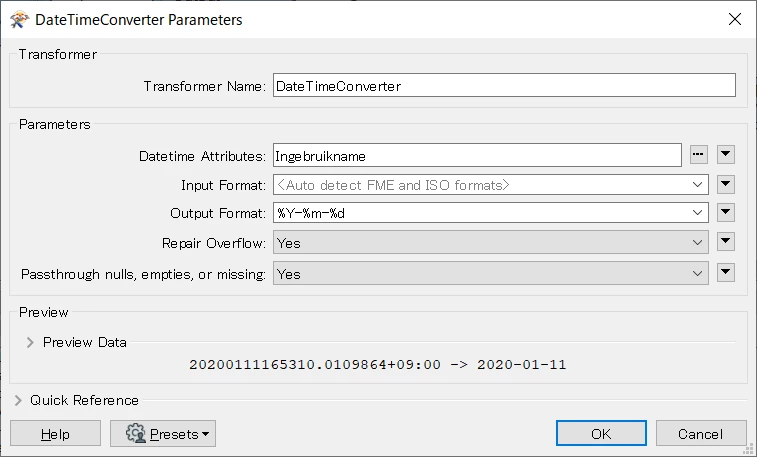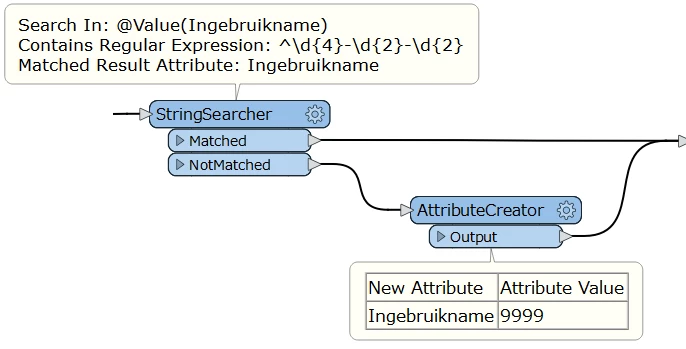Hi guys,
I have a table with an attribute 'Ingebruikname'.
This field contains a year, month and day and info in hours. For example: 2019-01-11T13:05:00.000. I created a regular expression to select only the part with information about year, month and day. Like:
2019-01-11T13:05:00.000
I would like to get my attribute 'Ingebruikname' updated to records with only date infromation as shown in bolt. Records with no data for 'Ingebruikname' should be included as well and left empty.
Do you have any ideas how to solve?









